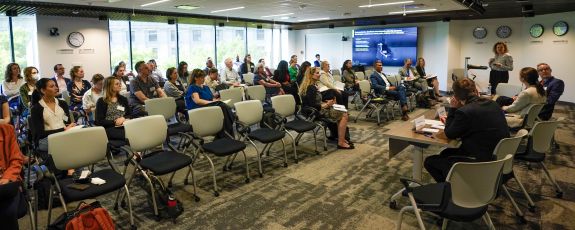The effect of climate change on existing forces driving migration amounts to “the development challenge of the world,” Çağlar Özden said at a recent Duke event.
Climate change is compounding other drivers of migration, such as poverty, conflict and demographic changes, according to Özden, a lead economist in the Development Research Group of the World Bank.
“You cannot fix one of them at a time,” he said.
Özden was addressing an audience comprising academia, government, international organizations, think tanks and the private sector at the Duke in D.C. office on April 21. The Conference on Climate Change and Migration was a one-day event exploring the future of migration in the context of climate change and its impact on policy needs.
“Migration is about both demography and geography,” said Özden, who is co-director of the World Development Report 2023: Migrants, Refugees and Societies, which launched on April 25.
There are about 184 million migrants in the world, with almost half of them living in low- and middle-income countries. Sixty-two million migrants are predicted in the next century.
The populations of high-income and many middle-income countries are quickly aging, Özden added.
“This is the only time in human history where the populations of the countries are declining voluntarily,” Özden said. “People are deciding not to have children. Demographic trends are rapidly changing and will change.”
Read the full story on the Duke Center for International Development site.
